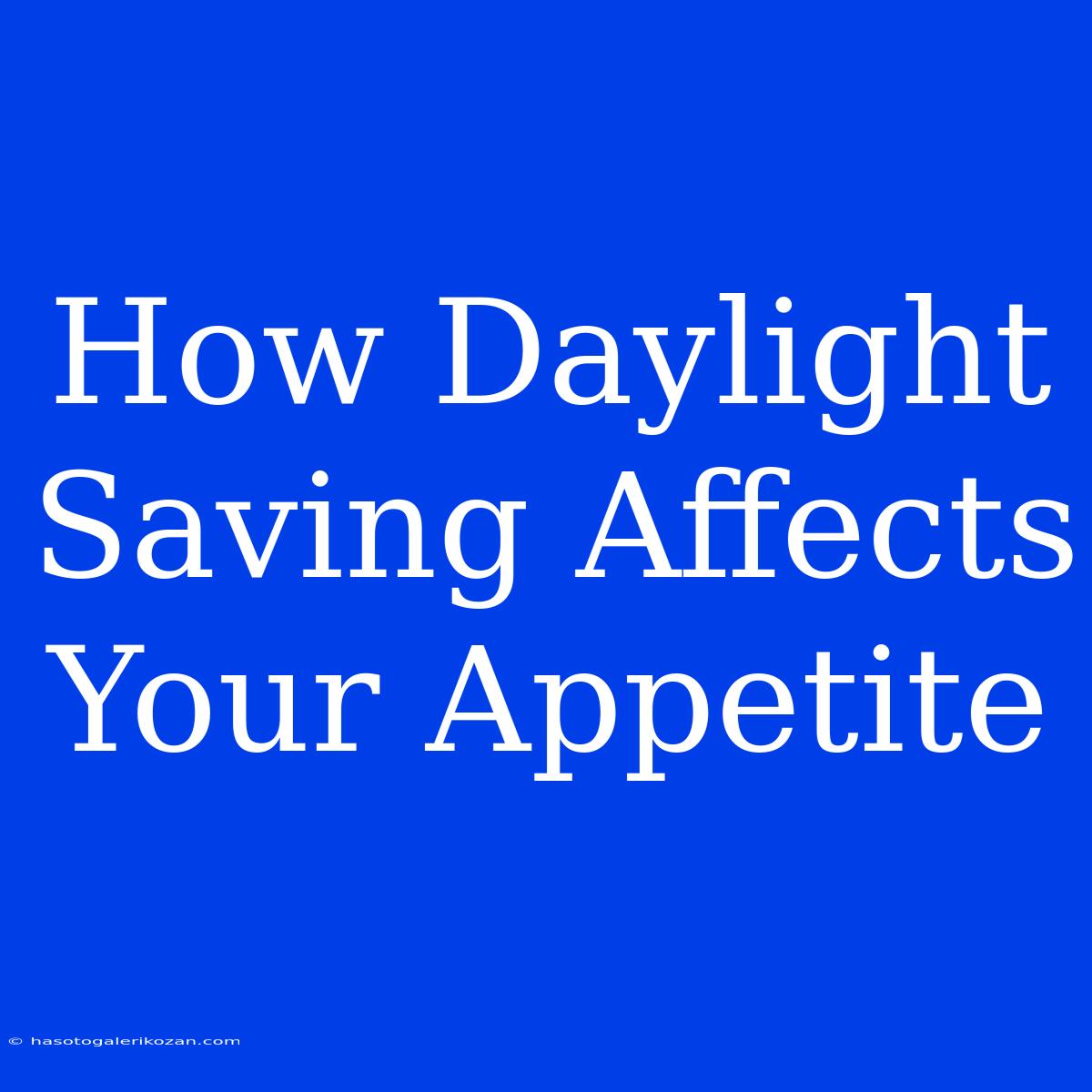How Daylight Saving Time Can Mess with Your Appetite
Daylight Saving Time (DST) is a seasonal time change that shifts the clock forward by an hour in the spring and back an hour in the fall. While this practice is intended to maximize daylight hours and potentially save energy, it can also have an unexpected impact on our bodies – including our appetites.
The Connection Between Time Changes and Appetite
The human body runs on an internal clock known as the circadian rhythm. This rhythm regulates various bodily functions, including sleep, wakefulness, hormone production, and even appetite. DST can disrupt this delicate balance, leading to a cascade of effects on our eating habits.
Here's how:
- Shift in Meal Schedules: DST throws off our usual meal schedules, leading to changes in when we feel hungry and when we choose to eat. This can disrupt our internal clock and make it harder to stick to regular eating patterns.
- Hormonal Fluctuations: The time change can affect the production of hormones like ghrelin (the hunger hormone) and leptin (the satiety hormone). This can lead to increased feelings of hunger or a decreased sense of fullness.
- Disrupted Sleep: DST can lead to sleep problems, especially in the initial days following the time change. This sleep deprivation can trigger stress hormones, which can also affect appetite and lead to cravings for sugary or processed foods.
- Social Factors: DST also brings about changes in social routines, leading to later dinners, weekend brunches, and more opportunities for social gatherings centered around food. These shifts can contribute to overeating and unhealthy food choices.
The Impact on Appetite:
While the specific impact of DST on appetite can vary from person to person, some common effects include:
- Increased Hunger: Many people experience increased hunger and cravings, particularly for carbohydrates and sugary foods, after the spring time change.
- Overeating: The disruption in meal schedules and hormonal shifts can make it easier to overeat, especially during meals that happen later in the day.
- Food Cravings: The stress and sleep deprivation associated with DST can trigger cravings for comfort foods and unhealthy snacks.
- Weight Fluctuations: Studies have shown that DST can lead to weight gain in some individuals, likely due to the combination of appetite changes and disrupted sleep.
Tips for Managing Your Appetite During DST:
- Stick to a Regular Sleep Schedule: Prioritize getting enough sleep even during DST, aiming for at least 7-8 hours a night.
- Eat Regular Meals: Maintain a consistent meal schedule, even if it feels slightly off during the initial days of DST. This helps to regulate your body's hunger cues.
- Choose Nutrient-Rich Foods: Focus on eating whole, unprocessed foods that provide sustained energy and promote feelings of fullness.
- Stay Hydrated: Drinking plenty of water can help to curb cravings and reduce the feeling of hunger.
- Limit Alcohol and Caffeine: These substances can further disrupt sleep and affect appetite regulation.
- Be Mindful of Portion Sizes: Pay attention to how much you're eating and avoid overeating, especially during social gatherings.
- Listen to Your Body: Pay attention to your body's hunger and fullness signals, and eat only when you're genuinely hungry.
By taking these steps, you can minimize the negative effects of DST on your appetite and maintain healthy eating habits throughout the year.
